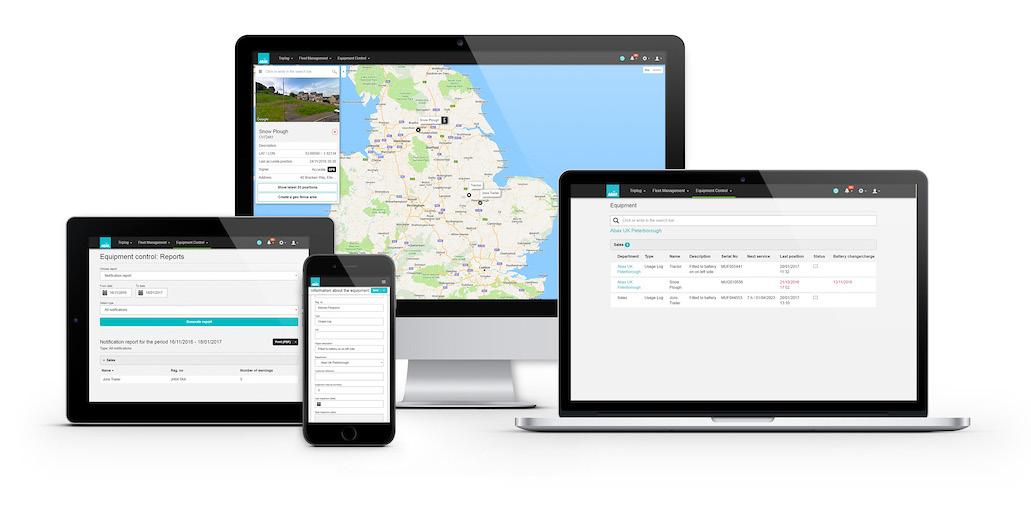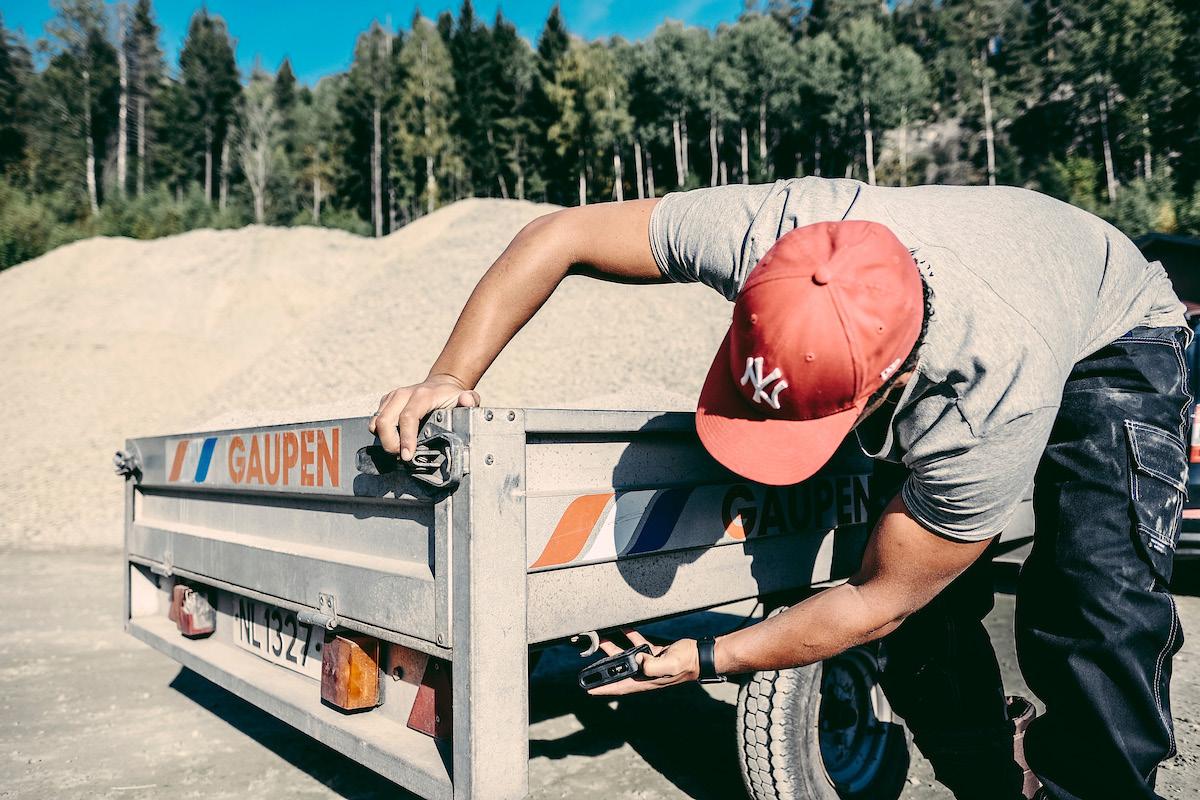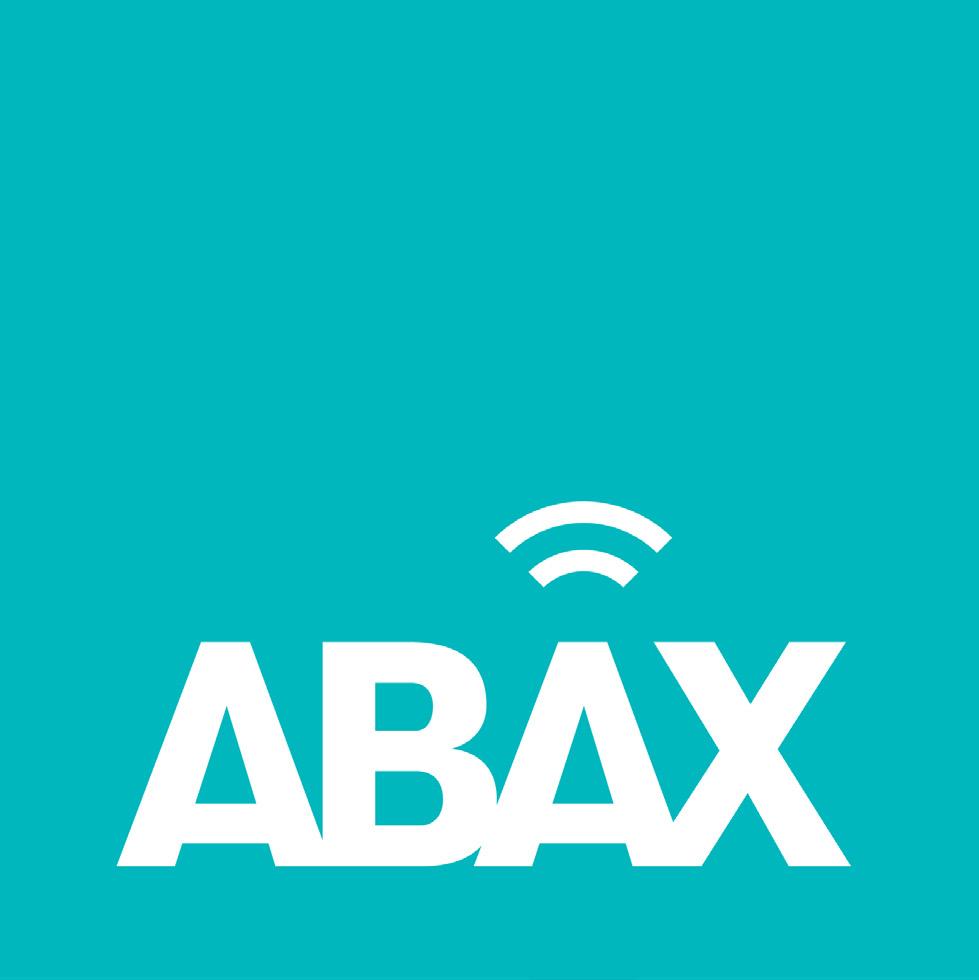
10 minute read
ABAX: Telematics. UK
ABAX: TELEMATICS. UK How to really look after your customers
Founded in Norway in 2003, ABAX has since opened offices across Europe and the UK and is now present in seven different countries. With products and services reaching clear across the globe, their technology is an essential tool for today’s data-driven vehicle fleet industry.
While originally focussed on GPS, over the years they have evolved and expanded into a solutions provider for asset tracking. Generating data on the real-time position and activity of assets and helping clients find ways to make this data work for them.
We spoke with Craig Allan, who is based in the UK and is in charge of the all-important and somewhat polymathic field of strategic partnerships. Craig explains that his role is all about the creation and ongoing development of business eco-systems and interestingly his background has not been in telematics.
THE IMPORTANCE OF ADDING VALUE Craig’s role, essentially, is creating the network of relationships upon which the whole can be greater than the sum of the parts. Uniting businesses together to work for the benefit of the customers and in doing so adding significant value to this overall, multi-way relationship.
This is one of the reasons that he attributes to ABAX continuing to be busy throughout the Lockdown period. According to him, this is due to the company always striving to create value rather than just sell a product. He says that same added value becomes part of the customer’s value chain and an essential component to their success.
“Like a keystone in a roman arch within a grand cathedral, we serve a fundamental purpose beyond just providing items and products,” he says.

Obviously, the Holy Grail of any business is to be considered irreplaceable by your customers. So how have ABAX been able to create this situation?
It is easy to give lip service to the importance of adding value to a business’ products and services. But the proof is in the pudding. Ongoing research, planning and development are the differentiating factors between those businesses that say they do and those that genuinely commit.
“Some businesses may look at their products and services and ask, ‘How can we develop this?’. They then concentrate on what their product is and see what improvements can be made,” Craig says, “However, adding value isn’t about bolting on extra things to what you already have. Adding real value requires identifying the major problems that your customers are facing. To understand the details of their industry and business even better than they do. What are they trying to achieve? What are their biggest goals? What is standing in their way?”
Once you have this information, he says, you then know what your product or service needs to do to help their business grow. And, this approach is ongoing; a continuous process of research, updating and learning that never ends. During the global crisis of Covid-19 and the resultant Lockdown, ABAX’s operations hardly slowed. With some furloughs, and the majority of staff being easily able to work remotely, their range of value-added services were a perfect fit for their customers during this period.
“With people not being able to go outside or travel, the use of delivery vehicles and fleets increased dramatically,” he says, “From Amazon, Deliveroo, to medical services to essential worker transport and even public transport all of these sectors use fleets and there was an unprecedented need for vehicle tracking and data.” Accessing this data conveniently is one of ABAX’s key products. A user can login to the system and from a single point see all aspects of their vehicles:trips, travel time, location, driving behaviour and more. It is a self-install system to keep up-to-date with one of the most essential components of business: your assets.
THE VALUE Accurate data is more important for businesses than ever. When it comes to broad challenges like climate change, fleet reliant businesses have been tasked with lowering their carbon emissions. Clearly, knowing fuel usage and the driving habits of drivers provides a perfect chance to make real meaningful improvements. And when it comes to combating more specific challenges such as preventing the spread of airborne viruses, being able to map and trace the route of a vehicle allows them to monitor and stop contagions.
Craig has seen this in action in in Larvik, in Norway where ABAX’s technology was directly used to trace the Corona Virus. This has allowed the municipality to create safety zones around nursing

homes and keep track of who is moving in and out them. It has also meant that telematics can be installed on critical equipment inside the car and monitored on a digital map. All of which has helped in bringing Norway out of Lockdown and reaching the new normal faster.
Particularly with insurance provider Zego entering into their thriving eco-system. All vehicles require insurance by law, but the traditional means of insurance is to pigeon-hole businesses and vehicle owners into certain categories, and charge rates according by category. This may have been the most reasonable approach at the turn of the
century, but today it is possible to know with absolute accuracy the exact amount of time a vehicle is moving on the road. So, with this kind of data, why are traditional insurers keeping clients paying for their insurance when the vehicle is not on the road?
Zego chose ABAX out of a pool of 164 telematics companies that they could have worked with. And, once this selection was made, it took only 78 working days to go from decision to implementation. By combining the most accurate vehicle usage data with the most appropriate insurance policies they are now able to offer the chance for fleet customers to pay a rate appropriate to their usage and driving style.
“Now,” Craig says, “A customer can not only monitor the exact data of their vans, trucks or cars, be them part of a fleet or not. But they can also have insurance cover which reflects their usage and how their drivers drive. In times of crisis like what we’ve found ourselves in, this is what customers want the most. Control.”
STAFF Great ideas and technology doesn’t just pop into existence. It has to be created, nurtured and grown by passionate people who believe they’re working for something important. With this in mind it’s no surprise that ABAX considers its staff to be their most valuable asset.
The company head office is in Norway and 350 staff work across the multiple international offices with thirty of these working in the UK. Each country has its own laws and regulations to follow which makes each office unique, but all of the staff are trained within the same ethos that has made ABAX the company it is.
The ABAX School is a learning portal that all staff must progress through. This helps get them on the same page, highlights what makes them unique in the industry and making sure that they understand the essential focusses of the business. Craig reveals that there are two main stages, global learning and then country learning.
Training lasts for around six weeks for new employees and is a combination of classroom and field based activities and programmes. Further to this, modules are released throughout the year to keep up with legislation changes and developments. Examples of this would be GDPR or post Brexit changes.
“We are always getting ready to release new training,” he says, “Also, individuals can request to take on more modules to increase their expertise in certain areas and for their own learning and development. Everyone has a login so you can easily see what sort of courses are available.”
Unsurprisingly, ABAX values data regarding their staff’s development and their happiness. Wherever possible promotions happen from within and there is a strong Scandinavian influence seen in the work-life balance. Surveys are conducted as well as the use of the airport style red-buttongreen-button displays to measure the employee happiness and monthly PFUS (personal follow ups) are conducted. With 80% of the staff being fully happy and engaged Craig says that it makes good business sense to look after your staff because they are the ones looking after your customers.
RELATIONSHIP. THE REAL VALUE. Even more than some, Craig knows the value of relationships. His entire career has developed around being able to forge new relationships with people and strengthen those already in place. No matter what the industry or the size of a business, in order to create a strong eco-system, it’s all about building trust. He explains that this is why Zego chose to work with them over the 164 telematics providers that they looked at.
“We came out as a top provider because we were open and honest and wanted to forge a relationship based on that trust,” he says, “We asked questions and established exactly what it was that they wanted to achieve. Others were able to provide solutions, but we were interested in what the long term goal was and how we could help them reach it.”

Building relationships with likeminded businesses is everything. And the two companies matched on their ability to think, be agile and their approach to business. Zego’s head office is in London and is similar to the ABAX headquarters in Norway. Including slides in the offices, branded T-shirts and active staff that are engaged, creative and excited.
2021 Discussing future plans is a big ask for ABAX. The company owns their entire value chain, including hardware and software and there is an entire contingent of tech guys whose job it is to analyse industry trends as they relate to clients and establish the direction of new developments. They ask the question of what is coming next and then the business puts together what products will actually sell.
“It doesn’t matter what product or innovation you invent if nobody buys it,” Craig says, “And for a person to pay for something they must need it. The solution has to be useful.”
This could include physical things like dashcams or the ability to combine timesheet and vehicle data. It could also include services such as conducting the research on legislation that could affect the industry and digest it for their customers. For example, the aforementioned current and upcoming legislation on energy carbon. Businesses need to report energy usage of all vehicles and machines. Up until now managers only had to report their kilowatt hours for a building. Now they are faced with having to do a similar thing with vehicles. “All of the required information can come out of the telematic systems,” Craig says, “Auditors need to be able to sign it off so it has to be formatted correctly and calculated in the same way each year to accurately demonstrate a reduction in carbon emissions.”
He adds that they were all over this long before customers were even affected by it, highlighting the trigger points for each client and putting themselves in the position to produce that data and enabling auditors to sign off on it. The issue was that many clients didn’t know that it was going to affect them.


“And if clients don’t know it’s a problem, they don’t ask for the solution,” he says, “It’s our job to highlight these things on their roadmap and show them where they are going and what to expect. This is looking after them, this is value adding. Identify the problem, explain it and give them a credible solution that can be actioned.”










